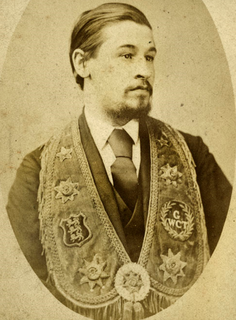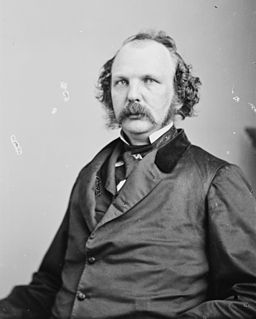A Quote by John Webster
Man may his fate foresee, but not prevent. 'Tis better to be fortunate than wise.
Related Quotes
Better guide the young than reclaim them when old For the voice of true wisdom is calling "To rescue the fallen is good, but tis best To prevent other people from falling" Better close up the source of temptation and crime Than deliver from dungeon or gallery Better put a strong fence round the top of the cliff Than an ambulance down in the valley.
It is ignorance that is at times incomprehensible to the wise; for instance, he may not see 'the positive person' or 'the negative person' in a black and white way as many people do. A wise man may not understand it because, as a catalyst of wisdom, but not wise in his own eyes, even he can learn from and give back to fools. To think that an individual has absolutely nothing to offer to the table is counter-intuitively what the wise man considers to be 'the ignorance of hopelessness'.
If idioms are more to be born than to be selected, then the things of life and human nature that a man has grown up with--(not that one man's experience is better than another's, but that it is 'his.')--may give him something better in his substance and manner than an over-long period of superimposed idiomatic education which quite likely doesn't fit his constitution. My father used to say, 'If a poet knows more about a horse than he does about heaven, he might better stick to the horse, and some day the horse may carry him into heaven'
No man is so foolish but may give another good counsel sometimes; and no man is so wise, but may easily err, if he will take no others counsel but his own. But very few men are wise by their own counsel; or learned by their own teaching. For he that was only taught by himself had a fool to his master.
Laws that forbid the carrying of arms . . . disarm only those who are neither inclined nor determined to commit crimes . . . Such laws make things worse for the assaulted and better for the assailants; they serve rather to encourage than to prevent homicides, for an unarmed man may be attacked with greater confidence than an armed man.
The way in which a man accepts his fate and all the suffering it entails, the way in which he takes up his cross, gives him ample opportunity — even under the most difficult circumstances — to add a deeper meaning to his life. It may remain brave, dignified and unselfish. Or in the bitter fight for self preservation he may forget his human dignity and become no more than an animal





































